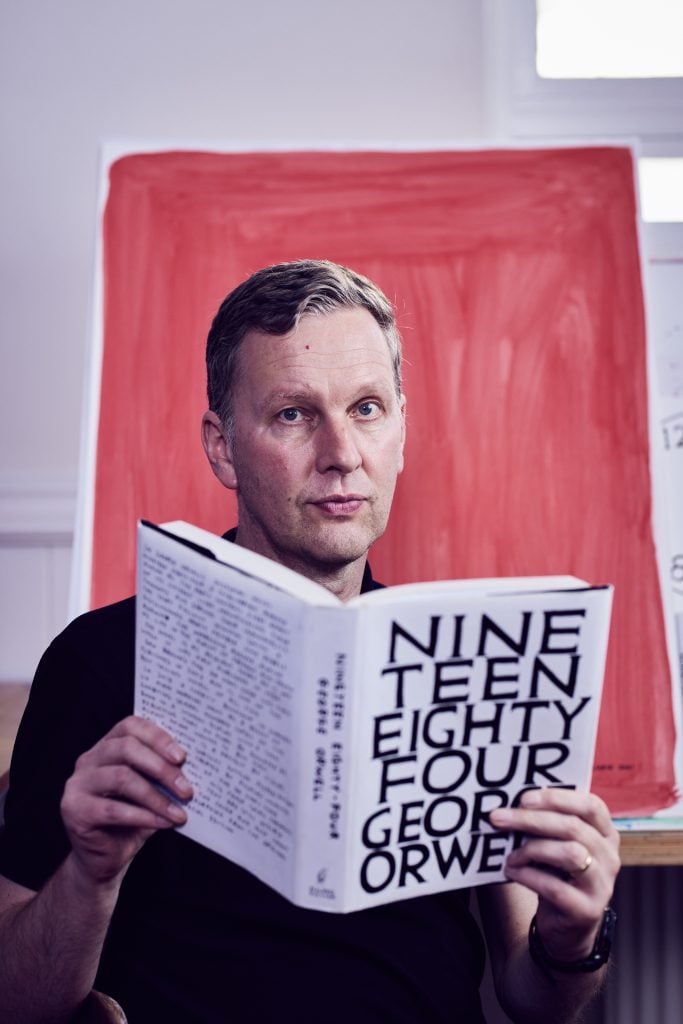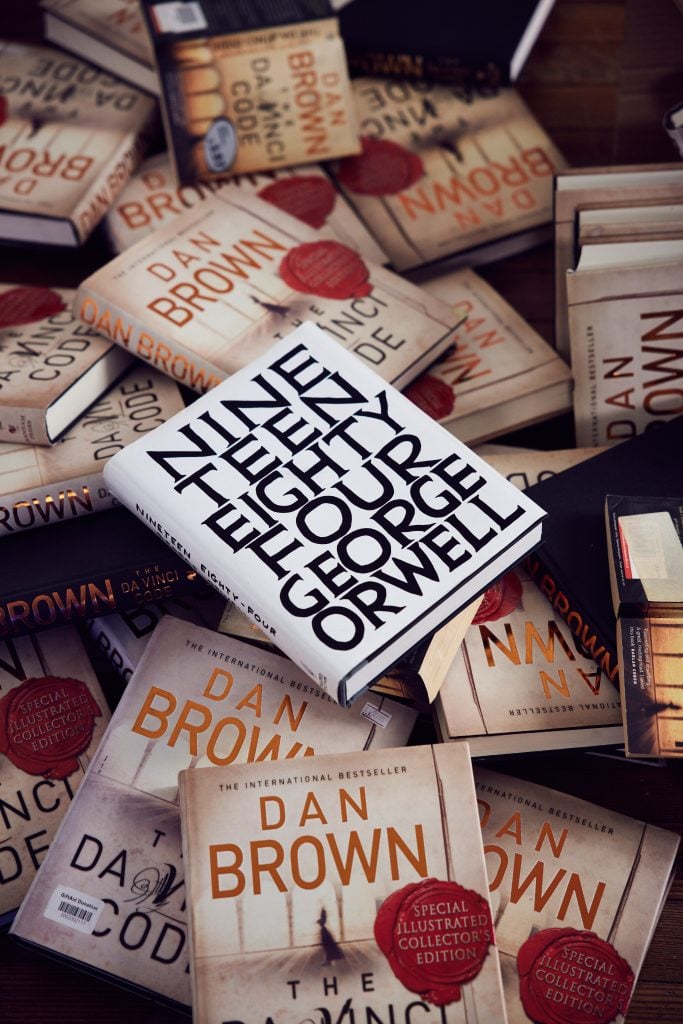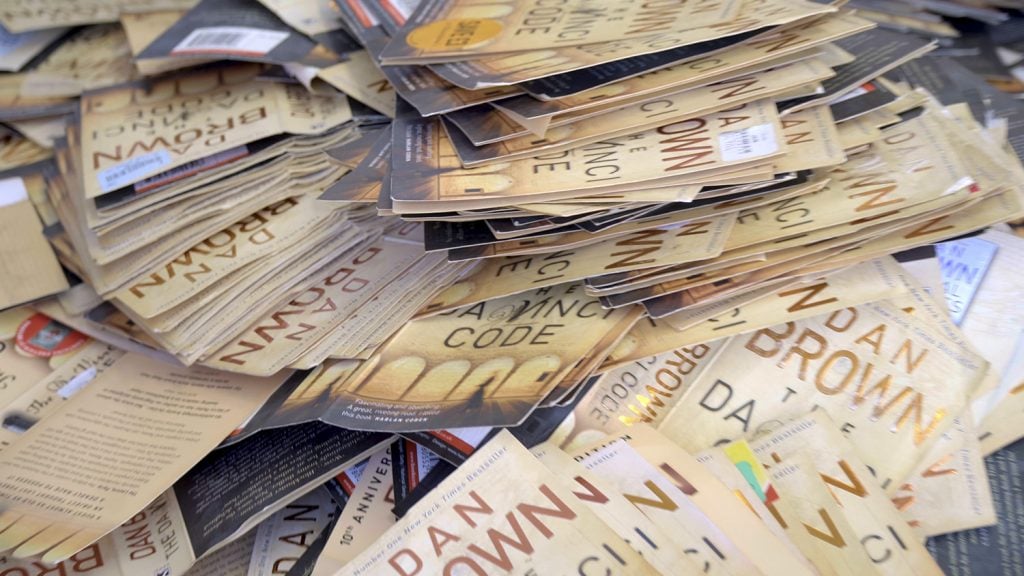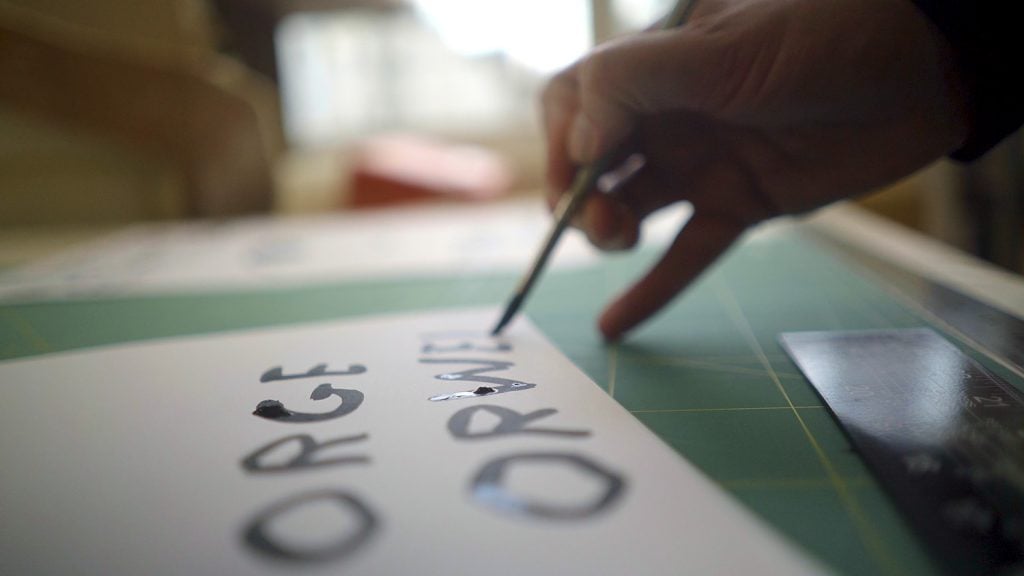Books
Artist David Shrigley Has Pulped 6,000 Copies of ‘The Da Vinci Code’ to Create New Editions of ‘Nineteen Eighty-Four’
The Turner Prize-nominated artist took one shop's trash and turned it into his own treasure.

The Turner Prize-nominated artist took one shop's trash and turned it into his own treasure.

Max Berlinger

Six years ago, an Oxfam charity shop in Swansea, in the U.K., half-jokingly pleaded that customers stop giving them their old copies of Dan Brown’s hit 2003 book The Da Vinci Code. David Shrigley saw the news and turned that amusing missive into his latest project: the artist has taken 6,000 discarded copies of the novel and upcycled them into new editions of George Orwell’s dystopian classic Nineteen Eighty-Four.
From October 28 to 29, the newly minted edition of Orwell’s work will be showcased and offered for sale at the same shop that inspired this creative venture.
“George Orwell, I think, always intended it to be a warning,” Shrigley told the Guardian of Nineteen Eighty-Four. “It wasn’t necessarily a parable of an existing state, but it was kind of a warning of what can happen when we don’t value our democracy.”
“We don’t have to think too hard about the way that our current society is ordered to see some parallels,” added the artist, a 2013 Turner Prize nominee.

David Shrigley’s Nineteen Eighty-Four, created by pulping discarded copies of The Da Vinci Code. Photo: Alun Callender.
Shrigley got the idea in 2017 after reading a newspaper report about the plea from the Oxfam shop, which had stacked copies of Brown’s book in its window with a sign that read: “You could give us another Da Vinci Code… but we would rather have your vinyl! We urgently need more records to help keep our customers happy… and make more money for Oxfam.”
Shrigley was in luck in terms of a combination of subject matter and timing. The 70th anniversary of Orwell’s passing was in 2020, meaning his works would pass into the public domain, legally allowing others to reinterpret them.

Copies of The Da Vinci Code about to be pulped. Photo courtesy of the artist.
“I can do it because nobody wants to buy The Da Vinci Code anymore—they just want to deposit it,” he told the Guardian. “So that, for me, is a project about: ‘Wake up! We are sleepwalking into a totalitarian regime!'”
Shrigley noted that this was no dig at Brown and his work, but more of a rumination on the idea that books shouldn’t be discarded. (The artist said he could have used any once-popular book that’s now fallen out of favor like, say, Fifty Shades of Grey.)
The excess editions of The Da Vinci Code yielded 1,250 copies of Nineteen Eighty-Four. The first 250 copies in Swansea are priced at £495 (about $600), and the remaining 1,000 will be available for £795 (about $965) on Shrigley’s website.

Shrigley hand-painting the cover of his upcycled edition of Nineteen Eighty-Four. Photo courtesy of the artist.
In addition to the upcycled books, Shrigley is releasing a 30-minute documentary detailing the project’s journey and the challenges faced by his studio.
“It’s not literary criticism,” Shrigley told the BBC. “It’s almost as if the decision to use The Da Vinci Code was made for me. It was made by Phil (who put up the sign) and the Oxfam shop. It was my decision to make Nineteen Eighty-Four, as I still think it’s a really important book for people to read.”
“It’s interesting to take one book and make it into one specific other book,” he added. “It’s quite a collaborative thing. I feel like we have collaborated with Dan Brown’s success.”
More Trending Stories:
Four ‘Excellently Preserved’ Ancient Roman Swords Have Been Found in the Judean Desert